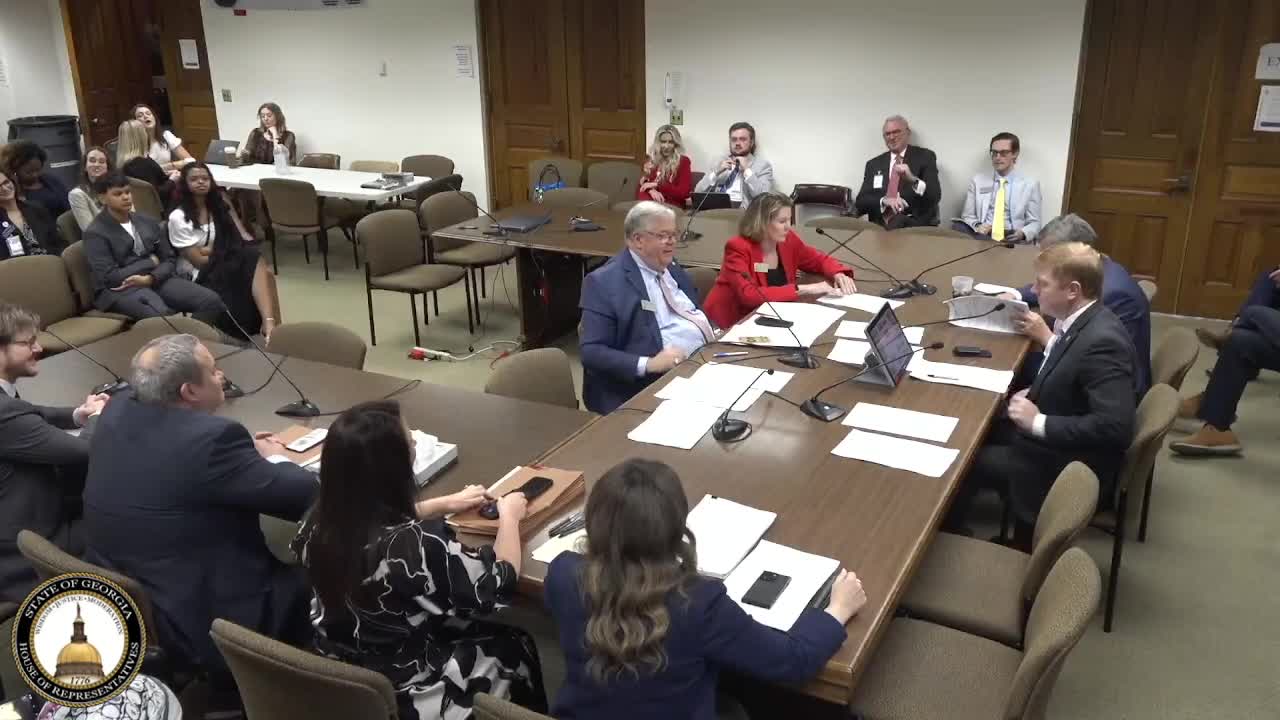Conferees complete HB 68 conference report, lawmakers cite $50 million governor contribution and shifts in priorities
Get AI-powered insights, summaries, and transcripts
Subscribe
Summary
Conferees on the conference committee report for HB 68, the fiscal 2026 general budget, said they have reached a compromise and prepared a spending plan ready for signatures.
Conferees on the conference committee report for HB 68, the fiscal 2026 general budget, said they have reached a compromise and prepared a spending plan ready for signatures.
"For those of you who don't know, the governor did bring $50,000,000 this morning to make this work," Chairman Jim Hatch said, acknowledging the governor's late contribution to the negotiations.
The committee said the chambers had been far apart earlier in negotiations — conferees described a gap of about $383,000,000 — and credited staff and the governor's Office of Planning and Budget (OPB) for helping reach an agreement. Director Christine Murdoch of the House Budget and Research Office was singled out by conferees for her role in preparing figures used during talks.
The conference report makes several specific shifts from earlier chamber positions, according to conferees. Literacy programs championed by Senator Billy Hickman, Speaker Burns and First Lady Dale Burns were accepted as the House had proposed; funding for the Promise Scholarship was returned to the governor's recommended level; and mental‑health and school‑security allocations moved "much more in the direction of the House," one conferee said.
Lawmakers said the package avoids bond issues and will be funded with cash in this year's proposal. The report also includes money for a STEM building at the University of North Georgia described in the discussion as the "MBT STEM building," additional funds for foster care and out‑of‑home care managed by the Department of Family and Children Services, and adjustments for judicial pay raises that officials said will begin in January.
Conferees raised corrections funding and operational concerns as part of negotiation work. "We had to call Tyrone several times," a conferee said, referring to the corrections commissioner, to obtain numbers needed to fund the Department of Corrections and to address contraband and cell‑phone interdiction in prisons.
Other policy or administrative items discussed included efforts to even the regulatory or payment "playing field" for pharmacies when dealing with the state. Conferees described the final proposal as prioritizing core needs across Georgia while acknowledging some requests could not be met.
No formal roll‑call vote or recorded motion to adopt the conference report appears in the transcript. Conferees said they expect to sign the conference spending report; the committee prepared the document for members to review and sign before finalizing the budget process.
Officials thanked agency staff and OPB for providing data during late‑hour requests. Several conferees framed the compromise as the result of extended negotiation: "we were quite a way apart," one said, noting the process required give‑and‑take to fund priorities statewide.
The conference committee did not provide full line‑item detail in the recorded remarks; the transcript lists the major allocations and directions discussed but does not include an executed adoption vote or fuller budget tables within the oral record.
